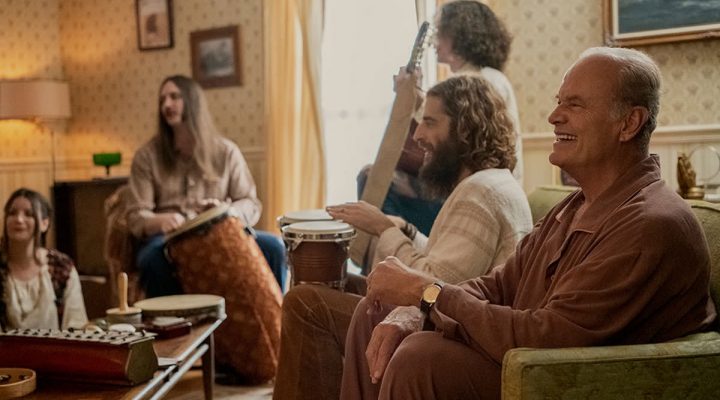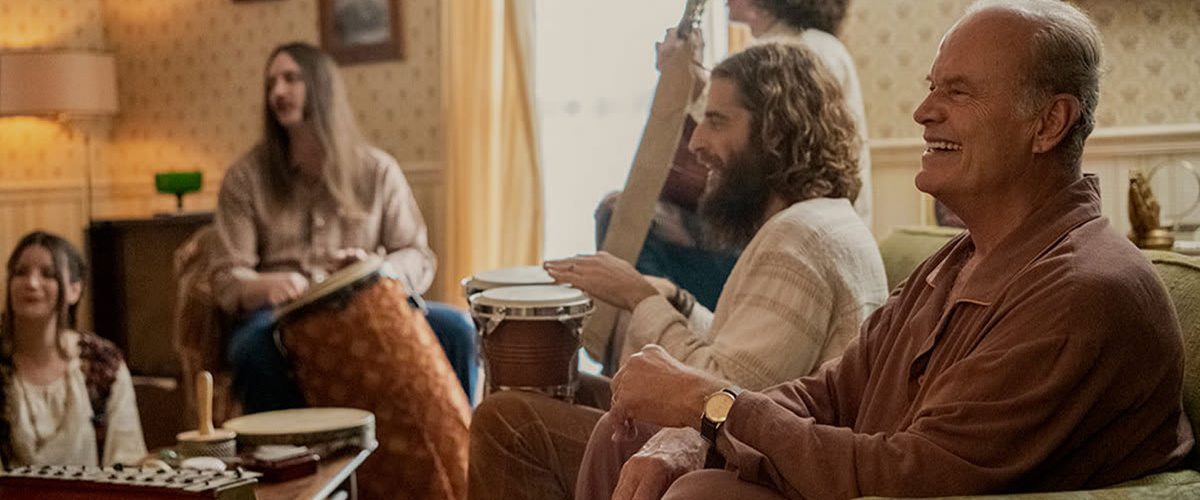In the second weekend at the box office, Jesus Revolution far surpassed expectations with a cumulative earning of $30 million. The movie is well done by Lionsgate and Kingdom Story Company and stars Kelsey Grammer, Joel Courtney and Jonathan Roumie. It is based on the account of Greg Laurie as told in his book Jesus Revolution: How God Transformed an Unlikely Generation and How He Can do It Again Today.
The book and movie are based on the historical events of Laurie growing up in the late 1960s in Southern California, his encounter with a hippie street preacher and the mentoring he received from a local pastor — all formative events in the development of Laurie and his future megachurch, Harvest Christian Fellowship.
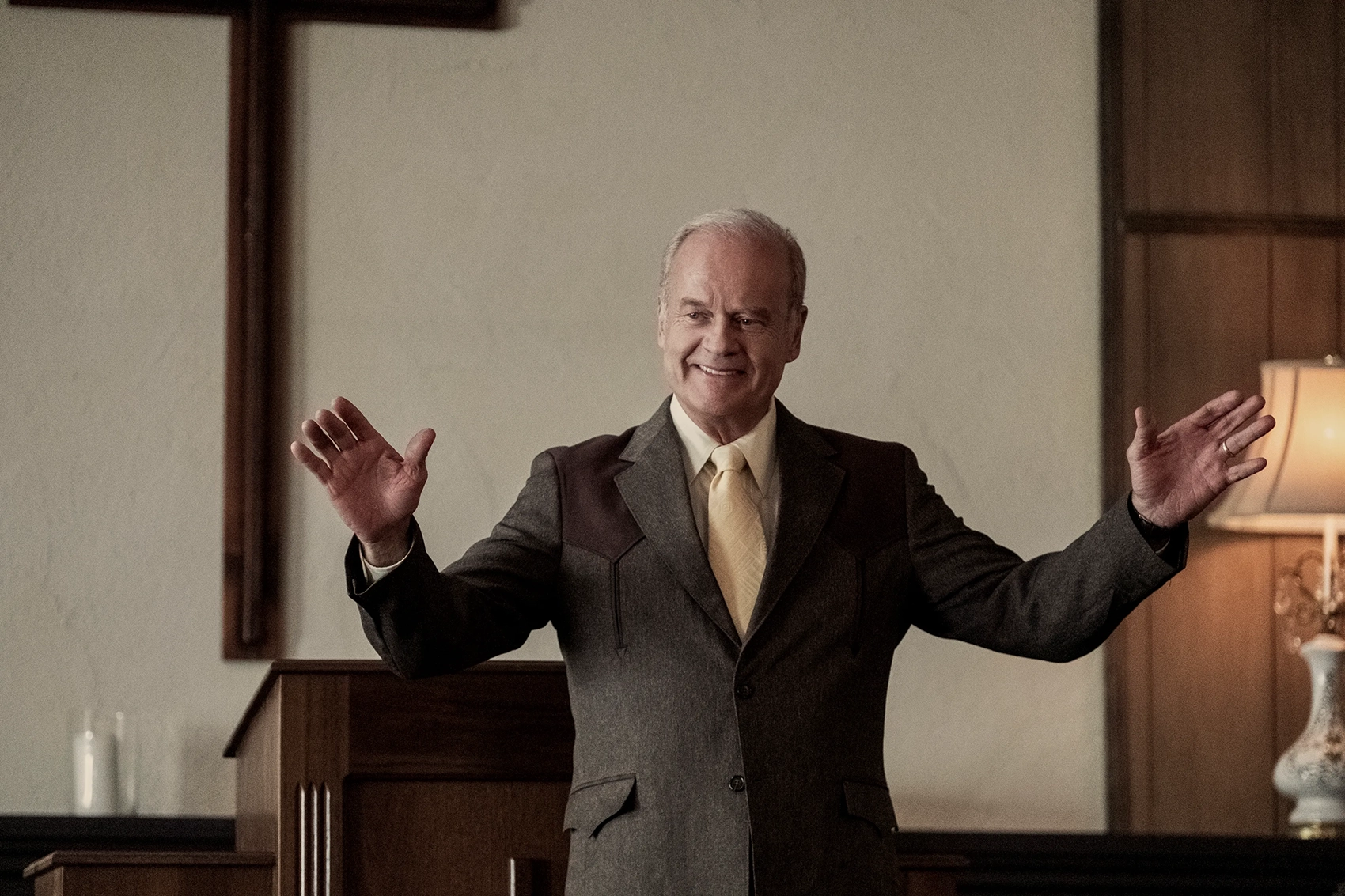
Kelsey Grammar as Chuck Smith
The pastor, Chuck Smith (played by Grammer) is drawn to the acceptance, love and charisma of the young street preacher and chooses to open the doors of his languishing church to the free-spirited hippies who follow Lonnie Frisbee (played by Jonathan Roumie, the actor who plays Jesus in The Chosen).
What unfolds in Southern California is the beginning of one of the greatest spiritual awakenings in American history, touching hundreds of thousands if not millions of young people across the country in the late 1960s and early 1970s.
Much like the early Christians, who were mockingly named “Little Christs” due to their allegiance to Jesus, those who became a part of the Jesus Movement were called “Jesus Freaks,” a name they embraced with full acceptance. They wanted to unite their desire for love, peace and rebellion against the establishment with their newfound passion to follow Jesus.
“This film has some of the best acting and cinematography of any Christian movie in recent years.”
The movie is a touching representation of some of what occurred through the influence of Frisbee, Smith and later Laurie and many others. As attested by its box office success and Rotten Tomatoes audience score (99% with 2,500 reviews to date), this film has some of the best acting and cinematography of any Christian movie in recent years.
However, with the movie release falling near the time of the Asbury revival in Wilmore, Ky., many Christians are longing for another spiritual awakening comparable to what is dramatized on the screen in Jesus Revolution.
In order to better understand this hope and the reality of what comes with it, we need to dig deeper into the storyline of what occurred in the Jesus Movement and what that means for another, similar spiritual renewal.
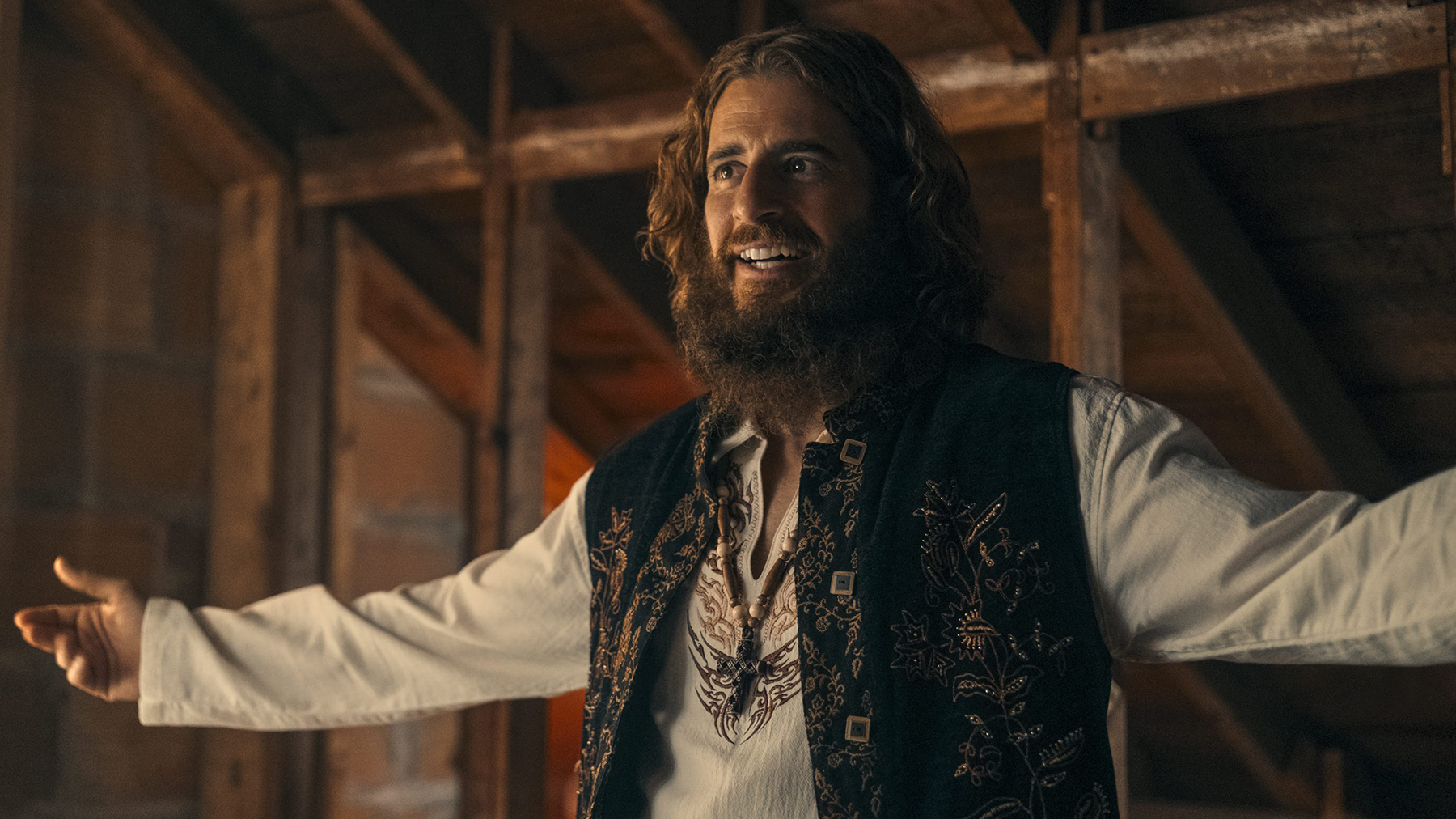
Jonathan Roumie as Lonnie Frisbee
Lonnie Frisbee was not Jesus. Certainly, Roumie was the ideal candidate to play the role of Frisbee. Not only does he share a similar appearance, he also brings many of his fans to the theater with the persona of playing the role of Jesus in The Chosen, which further identifies him as a Christ-like figure in Jesus Revolution.
Yet the movie side-steps many of Frisbee’s personal struggles. Frisbee was raised in a single-parent family, likely molested as a young child, and regularly ran away from home. He was heavily involved in the drug culture both before and during his involvement in the Jesus Movement. In fact, his evangelistic influence began while on an LSD trip, and he often was high when reading the Bible.
He was on acid at the time of his famous vision of a sea of people crying out to the Lord for salvation as he was preaching the gospel. Frisbee struggled with his sexual identity throughout his life. He was a closeted gay man (or at least dappled with a bisexual lifestyle) and struggled with his marriage to Connie, whom he divorced in 1973.
Tragically, Frisbee died of AIDS in 1993 at the young age of 44. His marital conflict is only briefly alluded to in the movie, which by-and-large avoids exposing much of Frisbee’s personal struggles.
Chuck Smith became enamored with the eschatology of Hal Lindsey. Hal Lindsey’s 1970 book, The Late Great Planet Earth, was one of the bestselling nonfiction books of the decade. Lindsey espoused a premillennial dispensational view of the end times and began to offer his interpretation of modern-day events, anticipating the end of the world within a generation. This led readers to begin to identify the exact dates of Lindsey’s interpreted end times events.
Smith, pastor of Calvary Chapel, emphatically believed and taught for a decade that Jesus would rapture believers from the earth in 1981, dismissing anyone who failed to agree with him as naysayers. A huge gathering occurred on New Year’s Eve in 1981 at Calvary Chapel in which many in attendance did not anticipate they would return to their homes.
When midnight came and went, so did the disillusioned people, returning to their earthly houses. Many never returned to Calvary Chapel, a devastating blow to the church and to the Jesus Movement.
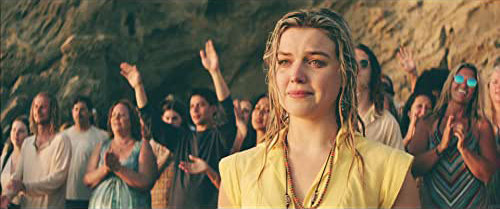
Anna Grace Barlow as Cathe
The greatest lasting influence of the Jesus Movement was in the arts. The Jesus Revolution movie only briefly shares about the band Love Song, but the impact of early rock praise bands is the greatest lasting influence of the Jesus Movement.
By the mid-1970s, contemporary Christian music was born and on the rise. Christian recording artists such as Keith Green, Phil Keaggy, Larry Norman, John Michael Talbot and Don Francisco helped pave the way for later Christian musicians. The broadening of the Christian music genre eventually paved the way for contemporary praise and worship bands, which are in many churches today.
Moreover, the theater and film began to explore a broader understanding of Jesus through depictions of Christ as a hippie in the 1973 musical Godspell and the controversial depiction of a very human Jesus in Andrew Lloyd Weber’s Jesus Christ Superstar in 1971. Other movies were made that evangelistically addressed the drug culture of the early 1970s such as the development of David Wilkerson’s novel, The Cross and the Switchblade. These are merely examples of the way American culture began to see Jesus through the lens of the Jesus Movement that was inundating various aspects of the social landscape.

The success of the church lies beyond its walls. Frisbee, Laurie and others frequently ministered to people along the beaches of Southern California, baptizing them in the ocean. Their draw to people to enter the church occurred concurrently with an intentionality to connect with others outside the church. This also accompanied a willingness to embrace, accept and welcome people in their present reality rather than expecting them to change and conform before or even after entering Christianity.
One of the most moving scenes in Jesus Revolution is when Chuck Smith washes the bare feet of the hippies entering the church after receiving complaints that they are dirtying the carpet of the sanctuary.
Throughout the Jesus Movement, people embraced Frisbee’s statement, “Turn on, tune in, drop out.” They found community among people who were broken, struggling and hurting but who also were searching for meaning, seeking hope and eager to find purpose.
The success of the Jesus Movement peaked on the wave of the hippie resistance to war, yearning for peace and embracing the social justice movement of the 1960s. The transformation went from the sanctuary to the streets.
For those eager to experience the next Jesus revolution, we must remember leaders are flawed, theology can be distracting and misleading, and spiritual transformation must extend beyond the walls of the church into the community and world. We also must fight the temptation to combine religious faith with political power.
Today, the biggest deterrent to the growth of the American church and the greatest threat to our country’s democracy is Christian nationalism. Yet people like Greg Laurie (and other influential evangelical leaders) continue to maintain that the United States has a special covenantal relationship with the Judeo-Christian God, should claim America as a Christian nation, and advocate for the advancement and preference of Christian principles and values in public spaces (Christian prayer in schools, Christian symbols in courthouses and parks).
Evangelical leaders like Laurie, who came out of the Jesus Movement rebelling against the establishment of church and government, have become the very thing they revolutionarily opposed.
“Revival seeks to dismantle the structural hierarchies and systems that cause oppression and injustice.”
A spiritual awakening like the late 1960s Jesus Movement must stem from outside the establishment and not from our governmental or religious leadership. It must be sparked by a culture that is eager for change to the rigidity and monopolizing power of the elite. Revival seeks to dismantle the structural hierarchies and systems that cause oppression and injustice.
People are drawn to who Jesus is rather than what the church has become, and this changes the church to become more like Jesus — walking in Jesus’ ways and relating to all people with the love and compassion modeled by Christ.
In whatever way that revival is being reborn in America, we must no longer be concerned about the stains on the carpet brought in by the hurting, marginalized and outcast who come through the doors of the church. Coming down from our ivory towers of judgment, we must do as the Savior did: Take up the basin of water, welcome all and wash their feet. This is revival.
Patrick Wilson has served as a pastor for 25 years in Dallas and Austin, Texas, and most recently in in Rolla, Mo., where he is starting a new community of faith, CrossRoads. He is a graduate of Baylor University, earned two master’s degrees at Southwestern Baptist Theological Seminary and a doctor of ministry degree from Logsdon Seminary.
Related articles:
Is beach revival a public health threat or a Jesus movement? | Analysis by Andrew Gardner
He Gets Us, Part 1: The men and money behind the movement | Analysis by Kristen Thomason

